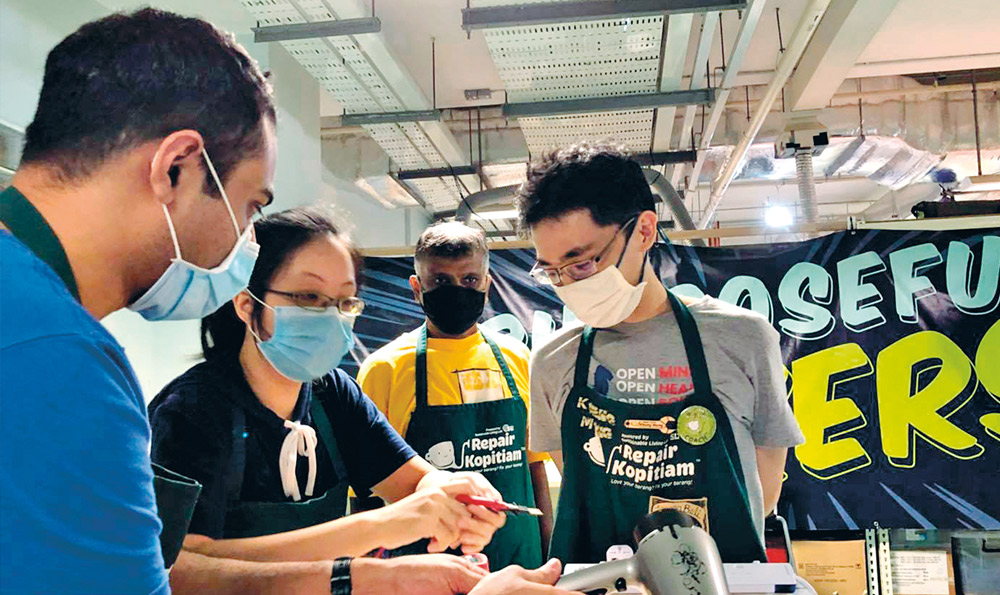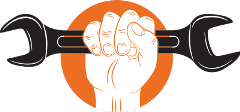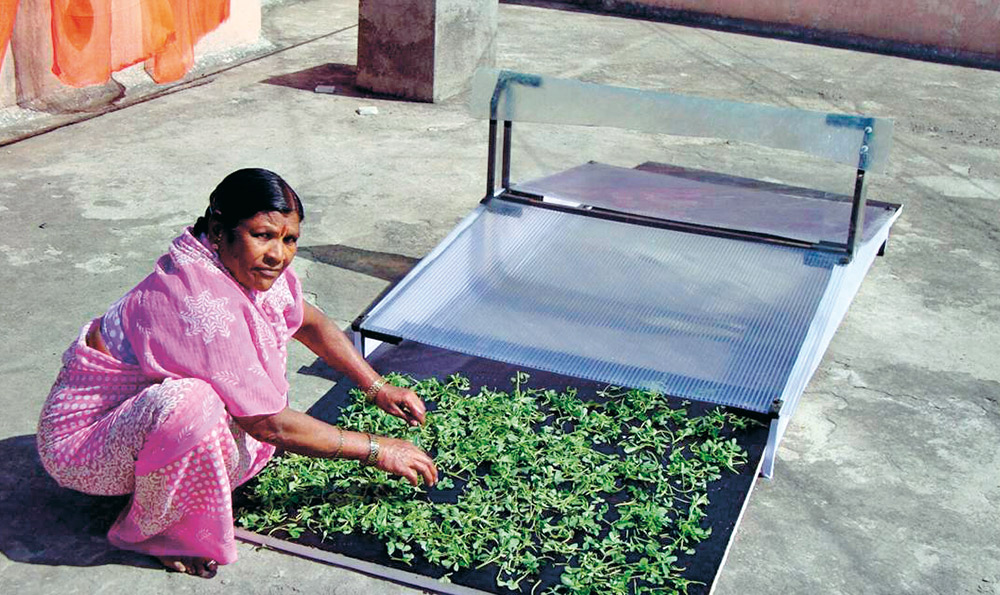The Maker Makes His Mark
Mr Veerappan Swaminathan (Engineering + USP ’11) made a pivotal decision in his first year at NUS that led to his career creating a maker culture in Singapore and bringing innovation to sustainability.
WHO HE IS
Mr Veerappan Swaminathan (Engineering + USP ’11) is the founder and director of Sustainable Living Lab (SL2), a consultancy which helps organisations innovate for environmental, economic, and social sustainability. Recognised as a leader of the maker movement in Singapore and Southeast Asia, Mr Veerappan is also the CEO and director of edm8ker, which trains teachers to impart “maker education” to youths. He was awarded the NUS Outstanding Young Alumni Award in 2019, and the 2018 Joseph Jaworski Next Generation Foresight Asia Special Award.
It was getting “very terrible grades” in his first semester at NUS’ Faculty of Engineering that made Mr Veerappan Swaminathan give up aiming to top his cohort, and instead direct his energies elsewhere. The world might thank him for it. Today, the 34-year-old is the founder and director of Sustainable Living Lab (SL2), a consultancy that custom-designs innovative solutions for organisations that want to grow sustainably, often using disruptive technology. SL2 has created such solutions for government agencies like the Housing and Development Board and the National Environment Agency, as well as commercial companies such as Nippon Closures and Sodexo.
“I decided to take advantage of the University’s global opportunities,” he says, recalling his strategy for getting the most out of his NUS education. “I embraced every opportunity NUS offered to take part in competitions and so on. I spent a lot of my time doing ‘extracurriculars’, as opposed to actual core subjects.” Mr Veerappan, who was on the University Scholars Programme (USP), understood early on that “you’re either top or you’re not”. “The logical strategy is to differentiate yourself, and if you’re average academically, then you should find non-academic ways to do it.”
BLAZING HIS OWN PATH
In 2007, Mr Veerappan signed up for a Sino-Singapore exchange programme where he travelled to China with students from other Singapore universities. “Most people did not bother with this programme because they thought it wasn’t ‘cool’ at all, but I signed up because I was trying to gather as much experience as I could, since the academic route was not going to work for me.” He took part in competitions like the UNESCO-Daimler Mondialogo Challenge, which required him to form a team with students from other universities to come up with solutions to address global issues — in this case, high suicide rates among farmers in India due to poor sales of their perishable goods. He approached Professor Arun Mujumdar, then with the NUS Department of Mechanical Engineering, who connected Mr Veerappan to his alma mater in India. Mr Veerappan’s team came up with the winning idea of enabling the farmers to process and preserve fruits using a low-cost, solar-powered machine — this extended the shelf-life of their harvests and earned them more income. The Solar Dryer Project still exists today and has grown into a much larger project, overseen by his former project partners from India. The prize money for their Mondialogo win was $42,000 — the first of many wins. Mr Veerappan and two of his classmates opened a joint account and put all their winnings in it: they won seven out of 11 competitions they took part in.
SL2 began life as a student club within USP. “We started in Chatterbox at Block ADM,” Mr Veerappan remembers. “There was an empty office space, and we asked Professor John Richardson, who was the then director of USP, for permission to use it. He and the current director Professor Kang Hway Chuan allowed us to set up our own prototyping studio.”
Upon graduating in 2011, the trio started SL2. By 2014, the founders reached a point where they had to decide whether to transform to become a non-profit organisation or remain a for-profit social enterprise. This led to them parting ways, with Mr Veerappan taking over SL2 as a business.
![]()
My chosen field of work is one worth doing — we want to work on things that are real issues, not invented needs.
 Encouraging people to give old items a new lease of life during a Repair Kopitiam workshop session.
Encouraging people to give old items a new lease of life during a Repair Kopitiam workshop session.
Seeding A Culture
Mr Veerappan, who is currently pursuing a Master’s degree in Intellectual Property Management, is recognised as being among those who introduced the maker movement to Singapore: creating a culture that enables people to develop skills to create, evaluate, and analyse — the higher levels of Bloom’s Taxonomy (a hierarchical classification of educational objectives), as he puts it. In 2014, he co-founded One Maker Group, with SL2 being the majority investor, and later sold his stake in 2017. From 2015 to 2017, he was also a director of the Singapore Makers Association. In 2016, he founded edm8ker, an educational extension of the maker movement that builds competencies in problem-solving, communication, and resilience. Starting with a handful of schools in Singapore, Mr Veerappan sparked off the creation of maker spaces that now exist in many primary and secondary schools. Today, edm8ker works with educational organisations and school districts in the United States and the MENA (Middle East and North Africa) region.
Repair Kopitiam is another initiative he started to promote the habit of repairing items and combat today’s ‘buy-and-throw’ culture. “Repair Kopitiam has been very successful in terms of giving repair a prominent role in the zero-waste strategy of Singapore,” he notes. “Before this, e-waste repair was considered marginal. So with this, we have shifted understanding on the ground and among agencies, and it’s one of our bigger contributions towards sustainability.”
“My chosen field of work is one worth doing — we want to work on things that are real issues, not invented needs,” says Mr Veerappan, who credits his critical thinking abilities and desire to solve problems to his parents: his father, a former financier now managing an old folks’ home; and his mother, a retired school teacher.
Maker Culture Defined

In its simplest terms, maker culture is one that seeks to promote the artisan spirit. It pulls individuals from different fields or skill levels into making something with their own hands, from calligraphy to furniture to technology. Collaboration and a DIY ethic are hallmarks of maker culture, and its creations are often pitched as alternatives to ‘soulless’ mass-produced goods.
The Art Of Pivoting
SL2 approaches sustainability solutions from an innovation standpoint, occupying a unique space next to other sustainable companies that may focus on environmental and sustainability governance, for example. “If anyone wants to do corporate innovation, for example, we will approach it from the angle of sustainable design,” Mr Veerappan explains. “Our innovation work centres around technology, which is why we are occupied with things like robotics and artificial intelligence. We try to stay a little bit ahead of the curve, so that we can bring value to customers, and also because these things sometimes can reframe the entire problem space.” Being in such a business requires a flexible mindset. SL2 initially intended to develop its own products, but being unable to be physically present in the countries these products would serve, it focused on offering services instead. Now that the company has labs in India and Indonesia, it has started developing in-house products.
While COVID-19 has cost SL2 some of its regular business, such as in-person corporate programmes in Cambodia and Thailand, Mr Veerappan says its skills-development projects are seeing an uptick in demand. edm8ker is also experiencing growth, training teachers to teach maker skills to children across the globe, as the world transitions to virtual learning.
Having pivoted from a strictly academic pursuit to a university education that granted him experience, exposure, and room to create, evaluate and analyse, Mr Veerappan has, on his own terms, created a fulfilling life and career. “Excellence is really a personal standard,” says the married father of an 18-month-old girl. “You must know your own standards and live up to them, not other people’s standards. ‘Is it good enough?’ is a question only you can answer. In life, we all start differently, so don’t compare yourself with others.”
 SL2’s Solar Dryer Project proved to be a lifeline for Indian farmers.
SL2’s Solar Dryer Project proved to be a lifeline for Indian farmers.
Text by Theresa Tan. Main photo by Alvin Teo